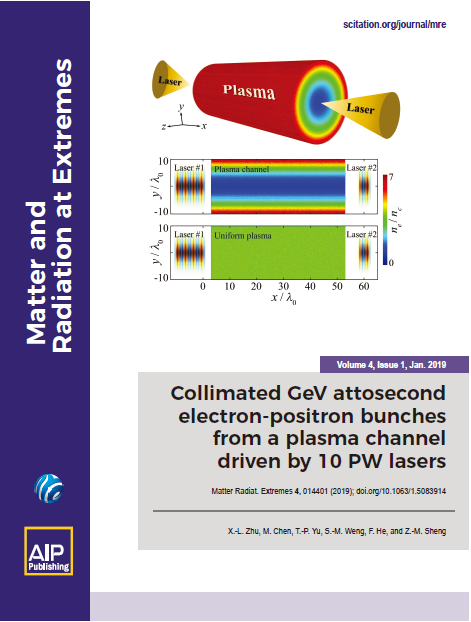Matter and Radiation at Extremes, 2019, 4 (1): 018401, Published Online: Nov. 14, 2019
Progress and challenges in the fabrication of DPS shells for ICF
Abstract
To improve the quality of deuterated polystyrene (DPS) shells, the synthesis and purification of DPS as well as the fabrication of DPS shells are investigated. The molecular weight and molecular weight distribution, measured by GPC-MALLS, are about 350 kg mol-1 and less than 2.0, respectively. The results of TG and GC-MS indicate that the residual solvent is almost completely removed. DPS shells with ~ 300 μm –2500 μm diameter and ~10 μm–100 μm wall thickness are successfully prepared by a microfluidic device. The monodispersity of the diameter is much better than that of the wall thickness in a batch of DPS shells. The vacuoles can be suppressed by both reducing hydrophilic residues in DPS and adding some salts into the outer water phase (W2). The defects appearing during the drying process decrease by heat treatment, ethanol exchange, and lowered drying temperature. The results presented in this work not only provide guidelines for the preparation of DPS shells of better quality, but also indicate challenges for the future.
Meifang Liu, Yawen Huang, Sufen Chen, Dawei Pan, Miao Chen, Qiaomei Chu, Yiyang Liu, Qiang Yin, Zhanwen Zhang. Progress and challenges in the fabrication of DPS shells for ICF[J]. Matter and Radiation at Extremes, 2019, 4(1): 018401.




